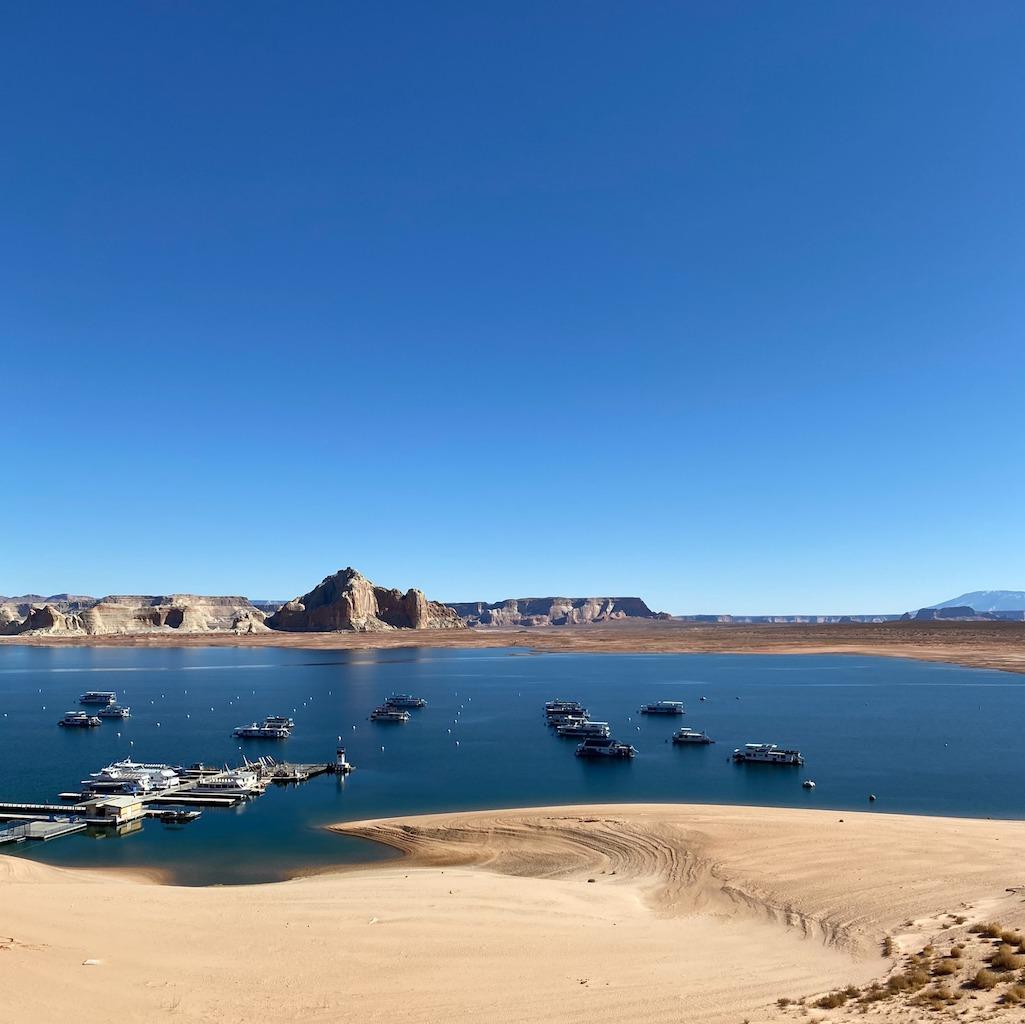
How is Lake Powell standing up to climate change and invasive species?/NPS file
Below average snowpack, an ongoing drought, and invasive species continue to plague the Colorado River as it flows out of Rocky Mountain National Park, past Arches National Park, through Canyonlands National Park, and into Lake Powell at Glen Canyon National Recreation Area. How have those factors affected both the recreational experience at Lake Powell, and the resources there?
Snowpack in the Colorado River drainage was down again this past winter, with both average snow water equivalent and total snowpack as of May 8 below average, at 53.26 percent and 72.4 percent of average, respectively.
Lake Powell, envisioned as a solution for the water-starved Southwest and a generator of power through the Glen Canyon Dam, is clearly suffering. As of May 7 the lake was less than 35 percent of full pool, or 138.5 feet below full capacity. Water coming into the lake stood at 1,887,691 acre feet on May 7 with 45 days left in the current water year, or just 42.8 percent of the May 7 average of 4,410,348 acre feet. The result is that the lake level is down 38.4 feet from a year ago.
Along with the declining water levels, the invasion of quagga mussels that are native to eastern Europe has greatly impacted the lake. These tiny mollusks can clog boat engines, cling to canyon walls surrounding Lake Powell, and heavily cover beaches along the waterline. Their sharp shells can cut into bare feet, making some beaches undesirable.
To see what the current situation is, the Traveler sent a team to Lake Powell this week to spend several days on the water and beaches to get a first-hand impression of both the impacts of the lower lake level and quagga mussels, and to see what boaters think of the current situation.
This is part of an ongoing series of stories on how both climate change and invasive species are impacting the recreational experience in the National Park System. Please support this work with a donation. Readers who elect to becoming a sustaining member of the Traveler, with a recurring monthly donation of at least $15, and those who send a one-time donation of $50 or more, can claim a water bottle, tumbler, or hat in support of National Parks Traveler.






Comments
I sent $ 1000 and got none of the items mentioned. A hat would be nice. Have spent 3 seperate weeks on Lake Powell- houseboating- it was at capacity fill at the time . Wonderfull experience, star & satelite & airplane lit nights sleeping on top deck as bats buzzed us. Satin breezes and kayaks used, and tubing swims in beautiful waters.
Bill, I'm afraid we have no record of a donation under your name. Could you send me your contact information via our Contact button please?